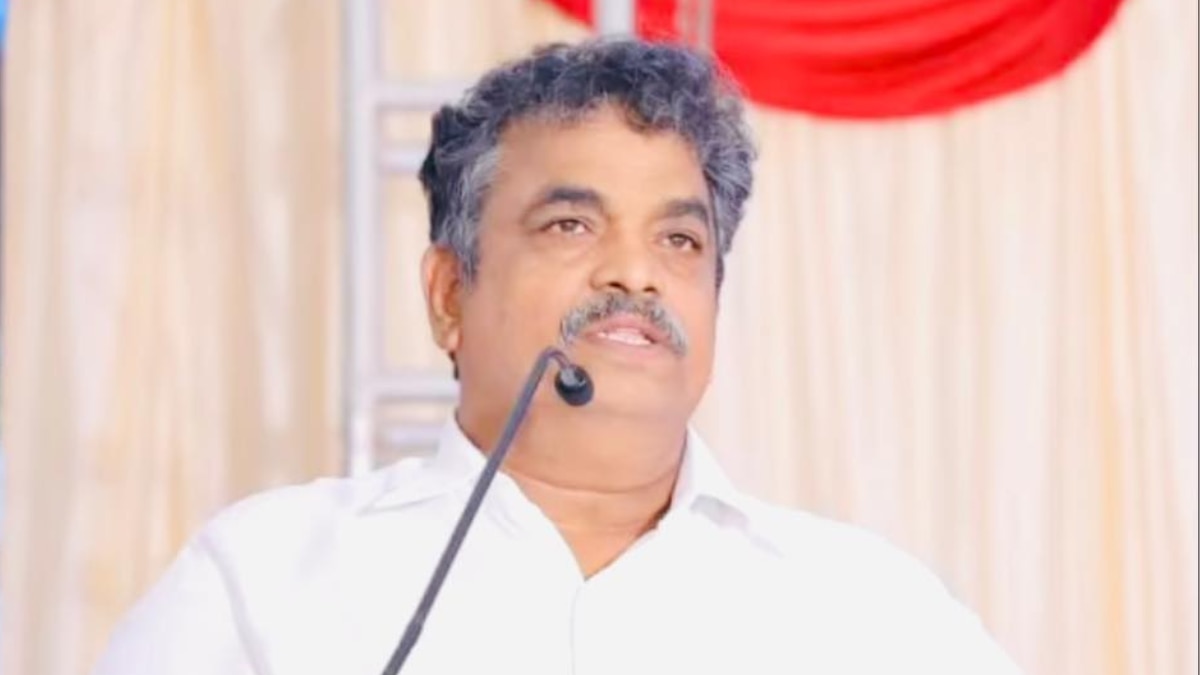In a major development shaking Karnataka’s political and mining sectors, the Enforcement Directorate (ED) has frozen assets worth ₹14.13 crore belonging to Congress MLA Satish Sail. The move follows investigations into alleged illegal export of iron ore, a longstanding issue tied to corruption, environmental degradation, and political controversies in the state. The ED raids, which targeted multiple premises linked to Sail, have reignited debates about the intertwining of politics and mining. With Karnataka’s iron ore industry already under the scanner for decades, this latest action places fresh scrutiny on the operations of influential political leaders.
The Enforcement Directorate’s freezing of Satish Sail’s funds has also opened debates on whether existing laws are robust enough to handle the scale of illegal mining in Karnataka. While the PMLA allows financial tracing, activists argue that without systemic reforms in mining governance, such actions remain piecemeal. They emphasize that frequent raids create headlines but fail to dismantle entrenched networks of corruption. Local villagers from mining belts echo this sentiment, pointing out that they have not seen much relief despite repeated investigations. Their lands remain barren, jobs scarce, and compensation inadequate, raising questions about the true beneficiaries of justice.
Another major point of contention is the role of regulatory authorities in enabling the alleged illegal exports. Critics argue that without the tacit approval of government agencies, large-scale smuggling of iron ore could not have taken place. Questions are being raised about port authorities, customs officials, and state-level mining boards, whose oversight seems compromised. The case against Satish Sail, therefore, also indirectly highlights institutional failures. Political analysts believe that unless there is accountability across all levels of governance, targeting a single politician may appear selective and insufficient. This makes the case a test for systemic reform, not just punishment.
For the Congress party, the freezing of Sail’s accounts is both a political liability and an opportunity. On one hand, it adds to the growing list of opposition leaders facing central agency action, which the party claims is orchestrated harassment. On the other hand, the party can attempt to rally public sympathy, projecting Sail as a victim of vendetta politics. However, this strategy carries risks. If concrete evidence surfaces against him, the Congress may find its credibility weakened further, especially in regions already skeptical about its governance record. The political implications could extend well into the next elections.
The BJP, meanwhile, has seized the moment to highlight its stance on corruption. Leaders from the ruling party argue that the ED’s action against Satish Sail proves their commitment to tackling financial irregularities, regardless of political position. They have been quick to remind citizens of past scams involving mining barons and politicians, positioning themselves as reformers. However, critics point out that illegal mining has involved leaders from across the political spectrum, including those allied with the BJP. This raises doubts about whether the crackdown is truly impartial or selectively targeted, undermining the party’s claims of absolute integrity.
From a legal standpoint, Satish Sail’s defense team is expected to challenge the ED’s findings, arguing that the transactions flagged are legitimate. Lawyers have already hinted at procedural lapses, claiming the freezing of accounts without prior notice violates natural justice. They may also push for greater scrutiny of the evidence, demanding clear proof that the funds are linked to illegal exports. Legal observers note that such cases often hinge on documentation, financial trails, and witness testimonies, all of which can take years to compile and verify. This makes the eventual legal outcome far from certain, despite the present uproar.
At the community level, the case has revived anger among residents living in mining-affected regions of Karnataka. Villagers allege that politicians like Satish Sail enriched themselves while their communities suffered irreversible losses. Farmlands were degraded, water sources polluted, and health problems escalated due to mining dust and chemicals. While funds have been frozen, they argue that no significant portion of recovered money has been directed toward rehabilitation. Environmental activists suggest that any recovered assets should be allocated to community welfare projects, ensuring that those who bore the brunt of illegal mining finally see tangible benefits.
Background of the Case
The illegal mining and export of iron ore has haunted Karnataka for nearly two decades, triggering the infamous mining scam that exposed deep-rooted corruption and environmental destruction. Satish Sail, a Congress MLA from Karwar, has now been accused of benefiting from illicit exports allegedly violating mining regulations and tax norms. Authorities suspect that significant quantities of ore were smuggled outside official trade channels, resulting in revenue loss to the exchequer. The ₹14.13 crore frozen by the ED is said to represent proceeds of crime under the Prevention of Money Laundering Act (PMLA).

Stakeholder Views
The development has sparked strong political reactions. Congress leaders have criticized the ED’s timing and intent, alleging that the action is part of the central government’s larger agenda of targeting opposition figures. On the other hand, ruling party leaders argue that no one is above the law, welcoming the crackdown on corruption. Civil society organizations and activists who have long campaigned against illegal mining say the case highlights how powerful politicians allegedly misuse natural resources. For local communities affected by mining, this episode rekindles anger over both lost revenue and the damage inflicted on their environment.
Legal and Political Context
Legally, the case falls under the PMLA, which empowers the ED to attach assets derived from illegal activities. The agency has argued that the frozen funds are directly linked to unlawful export proceeds. Politically, however, the matter is contentious. With Karnataka being a key battleground state, every action against opposition leaders is viewed through a partisan lens. Congress has accused the BJP-led central government of weaponizing investigative agencies, while the BJP maintains that accountability cannot be compromised. This clash between legal enforcement and political perception makes the Satish Sail case a flashpoint in state politics.
Environmental Impact of Illegal Mining
Beyond the political storm, the case revives focus on the environmental consequences of Karnataka’s illegal mining industry. Unregulated extraction has in the past stripped forests, displaced communities, and destabilized ecosystems. In regions like Ballari, rampant iron ore mining led to large-scale deforestation, groundwater depletion, and air pollution. Environmentalists argue that while accountability for financial crimes is necessary, equal urgency must be shown in restoring ecological balance. The freezing of funds, they insist, should be accompanied by policies to rehabilitate mining-affected areas, ensuring that natural wealth is not continuously plundered for political or personal gain.
Current Status of the Investigation
As of now, Satish Sail’s bank accounts remain frozen, pending further inquiry. The ED has summoned him for questioning to determine the scale of alleged involvement and identify potential collaborators in the network of illegal exports. Sources indicate that documents seized during raids are being analyzed for links to shell companies and offshore accounts. The MLA, however, has denied wrongdoing, insisting that his financial transactions are legitimate. Legal experts say the case could take months, if not years, before reaching a conclusive trial. Meanwhile, political reverberations are expected to continue across Karnataka.
Expert Opinions
Financial and legal experts have noted that while freezing assets is a strong preventive measure, it does not automatically establish guilt. They emphasize the need for transparent investigation and due process, particularly since political leaders often claim victimization. Economists, meanwhile, point out the larger economic costs of illegal mining—revenue leakage, market distortions, and loss of credibility for India’s resource governance. Environmental scientists caution that unless mining practices are regularized and strictly monitored, future generations will bear irreversible ecological consequences. Collectively, these expert opinions underscore the complexity of the case beyond just political rivalry.
Timeline of Events
The case traces back to Karnataka’s mining boom in the early 2000s, when unchecked exports became rampant. The Supreme Court’s 2011 intervention halted large-scale mining, citing irregularities and environmental violations. Over the years, multiple leaders across parties have faced scrutiny for alleged involvement in illegal ore dealings. The latest ED raids on Satish Sail’s premises mark a continuation of this probe, linking historical transactions with current financial trails. The freezing of ₹14.13 crore is seen as a significant step in an ongoing saga that has entangled politicians, businessmen, and bureaucrats in Karnataka’s mining sector.

Conclusion
The freezing of ₹14.13 crore in Congress MLA Satish Sail’s accounts is more than a legal move—it is a reminder of Karnataka’s unresolved mining legacy. While political parties spar over motives, the heart of the issue lies in governance, accountability, and the misuse of natural resources. For citizens, the case highlights both the need for transparency in political financing and the urgency of protecting the state’s fragile environment. Whether this probe leads to conviction or political posturing, its impact on Karnataka’s mining debate and electoral dynamics is likely to be far-reaching in the months ahead.
The case also exposes India’s broader struggle with balancing natural resource extraction and sustainable development. Karnataka’s iron ore reserves are among the richest in the country, yet mismanagement and corruption have reduced their benefits to the people. Experts argue that transparent mining policies, strict auditing, and community participation are key to preventing future scandals. They point to international models where resource revenue is reinvested into healthcare, education, and infrastructure. By contrast, in Karnataka, much of the wealth generated has allegedly lined the pockets of political elites. The Satish Sail probe, therefore, is emblematic of a deeper governance crisis.
Internationally, cases like these damage India’s reputation as an investment destination. Illegal mining scandals raise concerns among foreign investors about the predictability and integrity of regulatory frameworks. Trade partners relying on Karnataka’s iron ore supply may also worry about disruptions and reputational risks. Economic experts argue that consistent enforcement of mining laws is essential not only for domestic governance but also for global credibility. Unless India can demonstrate transparency in resource management, its ambition to become a global economic leader could be undermined by recurring scandals in critical sectors such as mining and energy.
Follow: Karnataka Government
Also read: Home | Channel 6 Network – Latest News, Breaking Updates: Politics, Business, Tech & More


